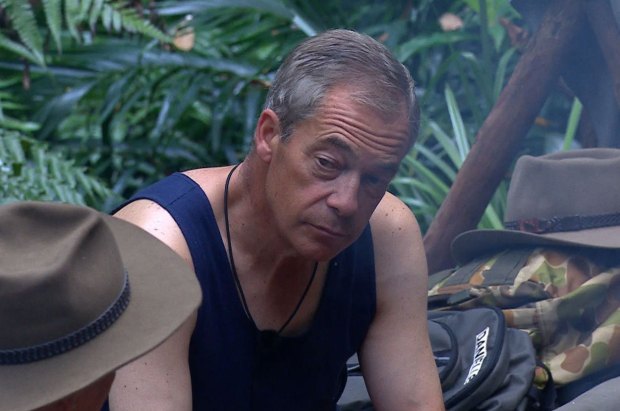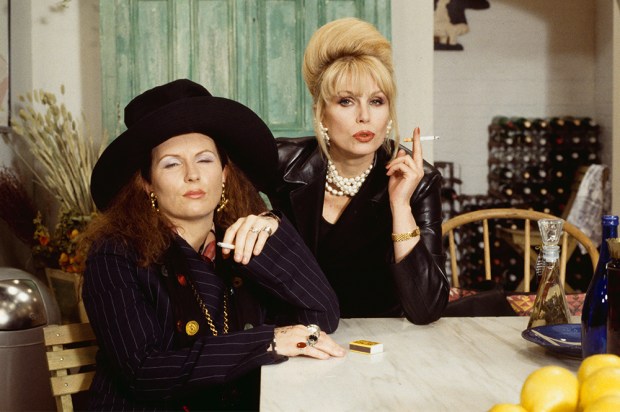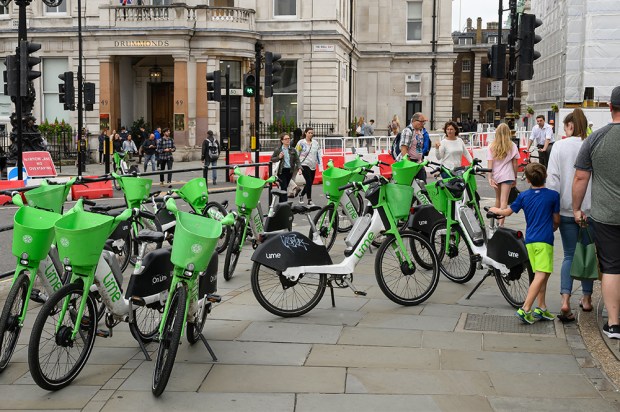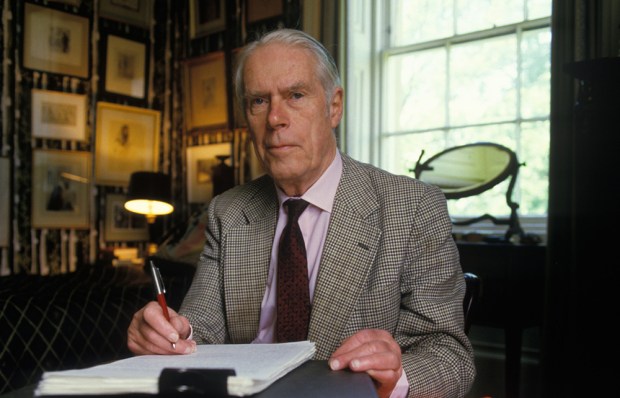Next time I’m in a sauna I’m going to say: ‘It’s like a school sports hall on prize day in here.’ As the mothers fanned their faces with the programmes, one of the other fathers, Her Britannic Majesty’s Ambassador to Uruguay, leaned forward and whispered: ‘Rookie error, mate. Should have worn a white shirt.’ He was right. I was wearing a blue one, which meant I couldn’t take off my linen jacket. My interest in hearing from the headmaster about the school’s successes on the sporting field began to wane after the first three hours. I’m pleased for the Under 11Bs hockey team and all they achieved back in February, but given the humidity I think it would have been kinder if he had stuck to the highlights. He redeemed himself with a rundown of ‘year 8 howlers’. The one that got the biggest laugh was the RE essay which noted that unlike Muslims, Christian men can only have one wife. ‘It’s called monotony.’
A friend has unearthed a letter written to his grandfather by his uncle Bobby, a Hurricane pilot. It begins with an account of a game of golf at the Goodwood course in which he records: ‘I had 8 bogeys and 1 birdie’. In the second paragraph he writes: ‘This afternoon we went a long way into France on a sweep and I scored my first real victory. I shot down a Focke-Wulf Condor, the largest German bomber, about 10 miles east of Châteaudun.’ The third and final paragraph is an account of a game of squash. Clearly he was dealing with the horrors of war by equating them with sport. Equally clearly, he was using sport in the way that fathers and sons have always used it, to express feelings, without the embarrassment of actually expressing them. Consider the father and son relationship in Nick Hornby’s Fever Pitch — their football talk is not about football. For my father and me, it is cricket. At the moment we are talking about the Ashes as if it were family news.
But I’ve been trying to work out why Uncle Bobby broke his news in that order, because his first kill was obviously more important to him than his round of golf. It must be to do with the British aversion to boasting. It’s like Wellington’s letter to his nephew, the one that ends with the postscript: ‘I believe I forgot to tell you I was made a Duke.’
My new novel has a parallel narrative: the one set in the present is about the return to London of a diplomat held hostage in Afghanistan; the one in the past concerns a couple persecuted for their homosexuality during the second world war. While doing my research I was struck by how tolerant we have become in a relatively short time. As recently as 1967 a man convicted of homosexuality would spend a year in prison or be given the option of chemical castration. Now a Tory prime minister is pushing the gay marriage Bill through the statute books. A. Tory. Prime. Minister. Those who object find themselves in a minority. I’m with the majority who, according to polls, can’t see what all the fuss is about.
Homosexuality is no longer the love that dare not speak its name. And in literature it positively sings it, having become a sub-genre, with Edmund White, Alan Hollinghurst and Colm Tóibín among its greatest contemporary practitioners. Tóibín has also written about heterosexual sex in his novel Brooklyn, most convincingly. I asked him how he managed it. He checked the scene with a heterosexual friend, he said. ‘Besides, the best gay scenes in fiction are by women, Pat Barker in Regeneration and Annie Proulx in Brokeback Mountain.’ It’s an intriguing point.
Four Weddings and a Funeral was made a couple of years after I got married and I identified with its conceit that in your mid to late twenties, every weekend is taken up with a wedding. Then they abruptly dry up, until the second marriages come around. I’m going to one this weekend. It will be conducted in a spirit of metropolitan irony. No dress code. The congregation will sing Dolly Parton. The best man is a woman. I imagine the first gay wedding next year will be a much more traditional affair.
Our car has just failed its MOT. As we are planning longish trips to Yorkshire and Cornwall this summer and the thing has done 128,000 miles, we decided to be reckless and have it serviced. The bill came to £1,700, which is more than the car is worth. It is the vehicular equivalent of negative equity.
July is when parents receive the dread letter that tells them by how much above inflation the school fees will be raised for the next academic year. There was something quite cruel about the way ours was phrased. ‘As a parent myself I fully understand the economic challenges facing you and Council have not increased the fees without lengthy debate.’ Try reading it again with a pause before the final three words.
Got something to add? Join the discussion and comment below.
Get 10 issues for just $10
Subscribe to The Spectator Australia today for the next 10 magazine issues, plus full online access, for just $10.
Nigel Farndale’s latest book is The Road Between Us.
You might disagree with half of it, but you’ll enjoy reading all of it. Try your first month for free, then just $2 a week for the remainder of your first year.













Comments
Don't miss out
Join the conversation with other Spectator Australia readers. Subscribe to leave a comment.
SUBSCRIBEAlready a subscriber? Log in